 Senator George Mitchell, President Bill Clinton, Nancy Soderberg, Nelson Mandela
Senator George Mitchell, President Bill Clinton, Nancy Soderberg, Nelson Mandela
For all its flaws, we have a peace to die for - something I have always thought is better appreciated from outside of us. It is a peace that depended on international help; on the urging and coaxing of Clinton and Mandela and others, including the Canadian General John de Chastelain who ignored the writing on the wall of ‘not a bullet - not an ounce’, and who with colleagues made significant progress in taking many guns out of Irish politics.
George Mitchell, Nancy Soderberg, Martha Pope and the arms inspectors Martti Ahtisaari and Cyril Ramaphosa are others who come to mind. We learned from South Africa and the Basque Country and they learned from us. Peacemaking happens in a two-way street. It needs facilitators and believers, and people who know the difference between leadership and power and ego.
The Trump White House confuses these things; confuses facilitation as it plays on one side. This time a year ago, at a festival event in Derry, I argued that unless Netanyahu was stopped, nothing would stop. And a year later, I would say the same thing. Erasing a land and its people is not a proportionate response to what happened on October 7th 2023 in the horror and the hell of the Hamas attacks. And nor was that date a starting point in a conflict with much deeper roots.
When I speak to them, I tell people from the Middle East that we can’t help them. And what I mean is that their conflict is way above our pay grade. Yes, we can tell them what worked here; ceasefires, quiet dialogues, negotiations and, eventually, agreements. The statements that ended the armed campaigns were a part of this, as were the Commissions on police reform, on prisoner releases and decommissioning.
Our land is still poisoned by the Past, and we have come to understand that peacebuilding is a 50-year or two generations project, which means we are only half way there. But we are much further along the road than many others. Is there anyone out there to speak above the noise of Trump and the noise of the bombs? Where have all the leaders gone?
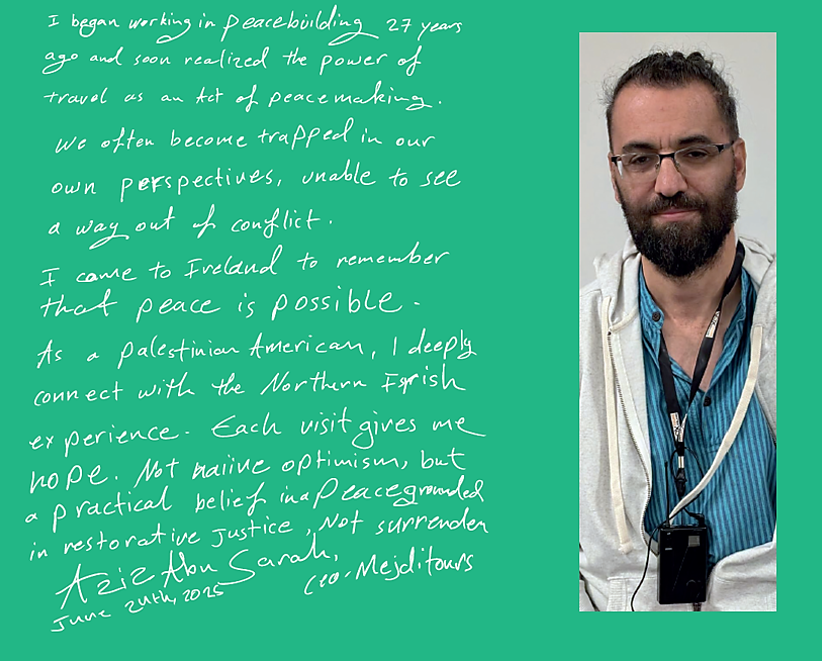 Aziz Abu Sarah is a peacemaker who uses travel as a tool for peacebuilding through his social enterprises Mejdi Tours.
Aziz Abu Sarah is a peacemaker who uses travel as a tool for peacebuilding through his social enterprises Mejdi Tours.
Text transcript
I began working in peacebuilding 27 years ago and soon realized the power of travel as an act of peacemaking.
We often become trapped in our own perspectives, unable to see a way out of conflict.
I come to Ireland to remember that peace is possible.
As a Palestinian American, I deeply connect with the Northern Irish experience. Each visit gives me hope. Not naive optimism, but a practical belief in a peace grounded in restorative justice, not surrender.
Aziz Abu Sarah
CEO Mejdi Tours
June 24th, 2025
Impossible Peace 2: Explore the collection
-
28 July 2005: 4 o'clock and all is well
Read now to access more details of 28 July 2005: 4 o'clock and all is wellThe archive follows the next phase of the Northern Ireland peace process through the years 2005-2010 and what happened after the IRA decision to end its armed campaign at 4pm on Thursday, July 28th 2005.
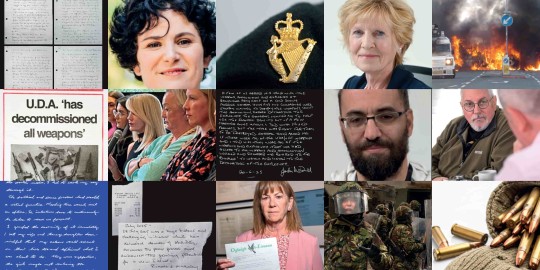
Article
Level: 1 Introductory
-
Impossible Peace 2: Introduction
Read now to access more details of Impossible Peace 2: IntroductionThis publication builds on our previous work -‘Impossible Peace’. Our focus now is the period 2005/10, and what happened after the IRA decision to end its armed campaign at 4pm on Thursday, July 28th 2005.

Article
Level: 1 Introductory
-
Impossible Peace 2: Tea for two
Read now to access more details of Impossible Peace 2: Tea for twoThe old receipt takes me back twenty years to a Saturday morning - July 23rd 2005. I was in one of those meetings of words and silences; sitting with Richard McAuley a senior aide to then Sinn Féin President Gerry Adams.
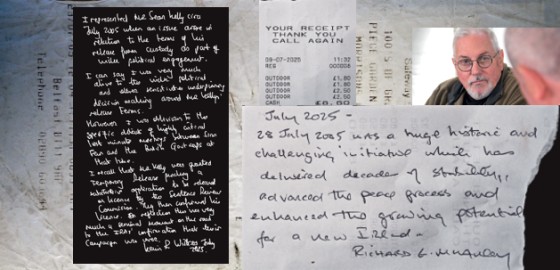
Article
Level: 1 Introductory
-
Impossible Peace 2: Thrown to the political wolves
Read now to access more details of Impossible Peace 2: Thrown to the political wolvesA seismic shift. A rapid sequence of events. What were the sentiments around the decision to demilitarise?
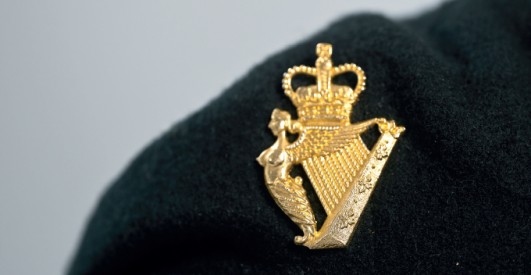
Article
Level: 1 Introductory
-
Impossible Peace 2: "The taigs are getting everything"
Read now to access more details of Impossible Peace 2: "The taigs are getting everything"Tense conversations. Lists of grievances. A day of rage.
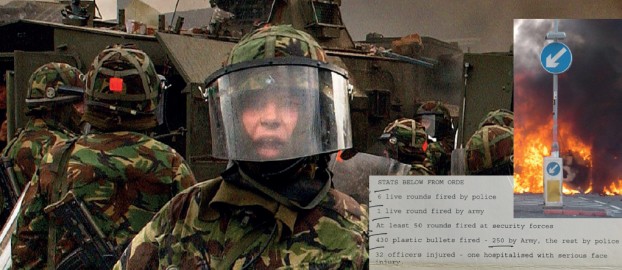
Article
Level: 1 Introductory
-
Impossible Peace 2: On a wing and a prayer
Read now to access more details of Impossible Peace 2: On a wing and a prayer"The job is done. It can't be done twice." What were the doubts and narratives around IRA decommissioning?
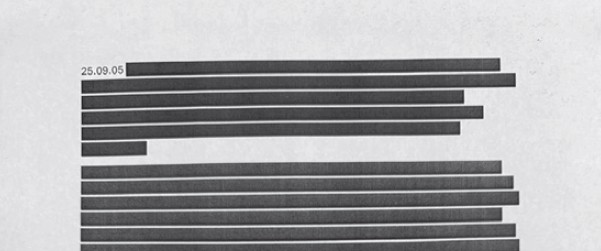
Article
Level: 1 Introductory
-
Impossible Peace 2: The bunker in the peace
Read now to access more details of Impossible Peace 2: The bunker in the peaceNew steps and ideas after 2006: "How do you build new policing on that battlefield?"

Article
Level: 1 Introductory
-
Impossible Peace 2: Bullets in their socks
Read now to access more details of Impossible Peace 2: Bullets in their socksBrian Rowan reflects on trying to make the pieces of the peace process narratives fit together.
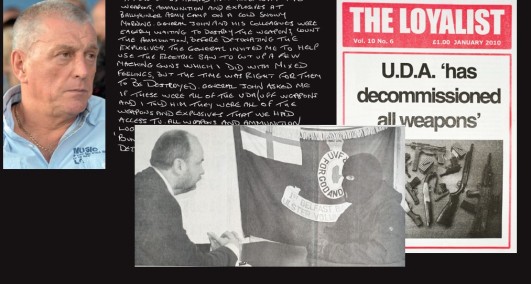
Article
Level: 1 Introductory
-
Impossible Peace 2: The murders at Massereene
Read now to access more details of Impossible Peace 2: The murders at MassereeneMarch 7th 2009: another murder scene painted onto the canvas of an imperfect, troubled, tortuous peace.
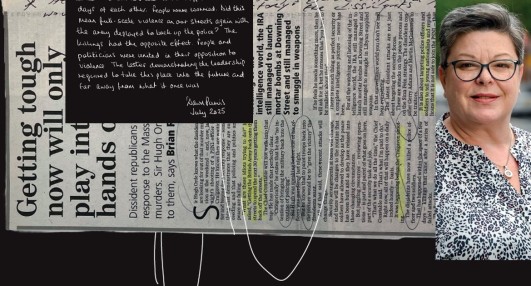
Article
Level: 1 Introductory
-
Impossible Peace 2: The missing legacy voices
Read now to access more details of Impossible Peace 2: The missing legacy voicesBrian Rowan reflects on the voices and stories of those no longer with us.
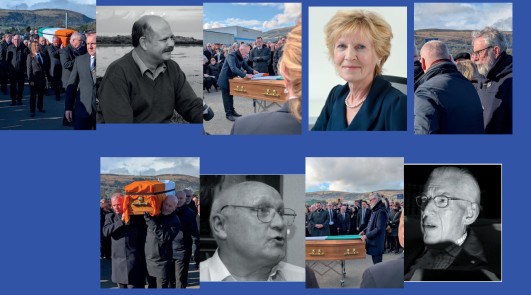
Article
Level: 1 Introductory
-
Impossible Peace 2: An everyday kind of miracle
Read now to access more details of Impossible Peace 2: An everyday kind of miracleThe afterword to the project archive by Declan Lawn - the screenwriter and director behind BBC's "Blue Lights".

Article
Level: 1 Introductory
-
Impossible Peace 2: Much more than an archive
Read now to access more details of Impossible Peace 2: Much more than an archiveThis project, under its heading Impossible Peace, is intended to do more than log detail and analysis. It is about taking all of that information into a wide conversation to discuss moments of history and learning and the different perspectives.
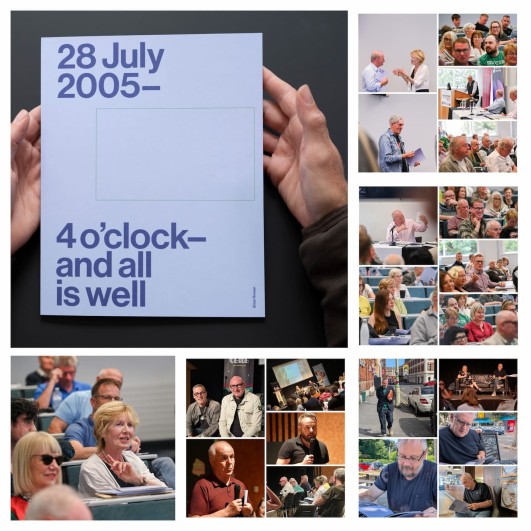
Article
Level: 1 Introductory
-
Ceasefire anniversary in Northern Ireland: 30 years of an impossible peace
Read now to access more details of Ceasefire anniversary in Northern Ireland: 30 years of an impossible peaceA story of change, drawing on the thoughts of some of those who made the ceasefires and the political agreement in Northern Ireland possible.

Article
Level: 1 Introductory
Download the archive (PDF, 37MB)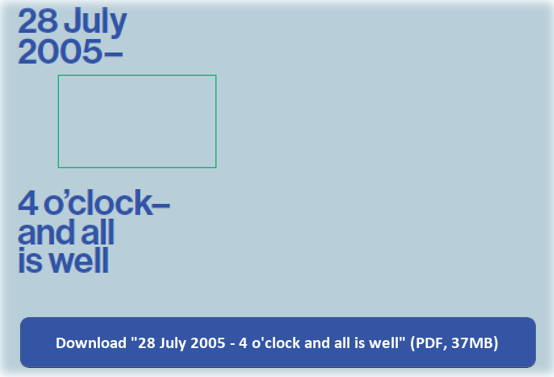
Acknowledgements
With thanks to project photographer Marie Therese Hurson, Stills Photographic.

Rate and Review
Rate this article
Review this article
Log into OpenLearn to leave reviews and join in the conversation.
Article reviews